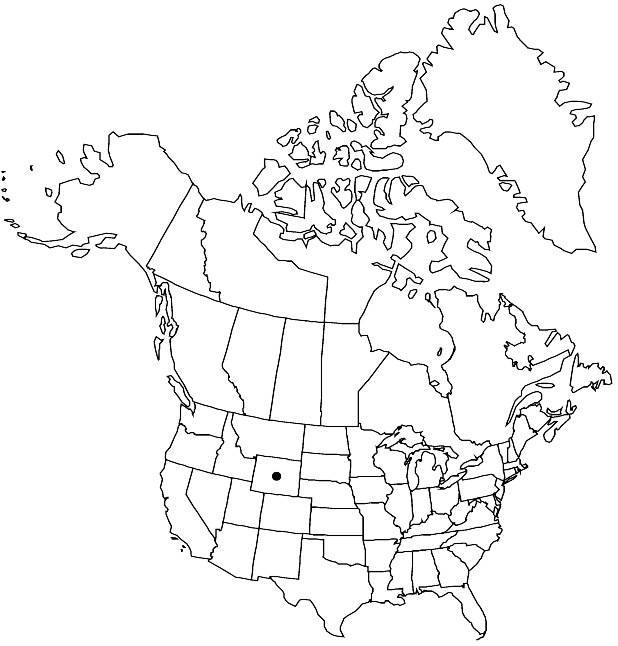Physaria fremontii
Novon 12: 323. 2002.
Perennials; caudex simple; densely pubescent, trichomes (subsessile), 5–7-rayed, rays distinct or slightly fused at base, usually furcate, (roughly tuberculate). Stems few to several from base, prostrate, (arising proximal to a terminal cluster of erect leaves, usually unbranched, slender), 0.5–1(–1.5) dm. Basal leaves: (petiole slender); blade elliptic to rhombic, 1.5–4(–5) cm, (base gradually tapering to petiole), margins usually entire, rarely dentate. Cauline leaves: blade narrowly obovate to oblanceolate, 5–15 mm, margins entire. Racemes (relatively short), rather loose. Fruiting pedicels (usually secund, recurved), 5–8 mm. Flowers: sepals ± elliptic, 4–6 mm; petals ovate, 6–8 mm, (claw slightly expanded at base). Fruits (pendent), globose, subglobose, or slightly obcompressed, slightly or not inflated, 3–6 mm, (rigid, apex usually beaked); valves pubescent throughout; ovules 8–12 per ovary; style 1–2 mm, (pubescent). Seeds slightly flattened, (suborbicular).
Phenology: Flowering May–Jun.
Habitat: Calcareous gravel, loose whitish rubble, limestone pavement, rocky calcareous ridges
Elevation: 2100-2800 m
Discussion
Of conservation concern.
Physaria fremontii is known from the area of the Wind River Mountains.
Selected References
None.
